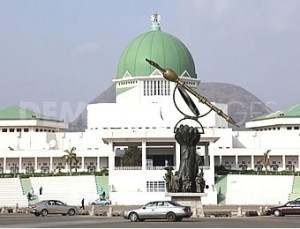
Vanguard / Nigeria: Engineer Martin Onovo, is an oil and gas Engineering consultant and an energy expert. Aside being an alumnus of the University of Houston, Texas, USA, he has worked in the global oil industry for over 25 years, traversing many continents and the Niger Delta region. Also, at the 2015 elections, he was the Presidential Candidate of the National Conscience Party (NCP). In this interview, he proffers solutions to many ills plaguing Nigeria as he takes a critical look at recent government policies or lack of them. Excerpts.
As an industry player, do you think the recent passage of the Petroleum Industry Governance Bill, PIGB, a part of the PIB by the Senate is a laudable move?
We do not think so. We have consulted other experts too and have confirmed that they also do not think so. It is not a laudable move. It has no benefits. It has very heavy unproductive costs. There are many reasons why this bill is wasteful, bureaucratic and inappropriate. In this Petroleum Industry Governance Bill, the Senate simply split the NNPC into an upstream and a downstream establishment and also replaced the DPR with a new industry regulatory authority.
Of what use can that wasteful, ordinary, bureaucratic organizational adjustment be to Nigeria? Instead, it simply adds unproductive costs of the bureaucratic changes they made to our national recurrent expenditure.
The original purpose of the PIB was to have one comprehensive and updated law that regulates the entire Nigerian petroleum industry both upstream and downstream. This was calculated to make it easier for investors to get a complete view of all laws guiding activities in the petroleum industry so that they can make their investment decisions promptly and thereby increase investments in the industry. Unfortunately, this original primary purpose was defeated by the breaking of the proposed PIB into about five parts and passing only one part, by the Senate. It is a first step towards the misalignment of the laws governing the petroleum industry. The PIGB passed by the senate covers only the governance structure of the industry and introduces very wasteful costs of the bureaucratic organizational adjustments they made. We hope the House of Representatives will not accept it as passed by the Senate and if they do, it should not be signed into law. Otherwise, Nigeria will waste very valuable funds and incur increased operational costs.
What do you think is the way forward for the industry?
The way forward for the industry is very clearly established and published. In the upstream sector of the industry, we should grow reserves and increase production safely and more efficiently. We should also improve gas utilization which will reduce flaring and increase revenue. In the downstream sector, we should increase domestic refining capacity. To achieve these, we must identify and prioritize all our issues and risks and manage them efficiently. Today, the major issues include; security problems in the Niger delta, uncertain investment climate that was created by the PIB idea, host community relations, policy changes, political risks, corruption, and mediocrity. We must manage these and other risks and issues most efficiently to achieve our national objectives for the petroleum industry.
How in your view can the country tackle corruption and nepotism in the system?
The country can tackle corruption and nepotism in the system by getting the right political leadership. The right political leadership will be ethical, diligent and competent in leadership. Corruption and nepotism cannot thrive in the system without the active support of the political leadership. The mass media as the fourth estate of government in Nigeria and the constitutional watchdog, must play its constitutional role and demand transparency, accountability and performance from the political leadership.
How would you rate the impact of the government in the sector?
The impact of the current government in all the sectors of our national economy has been very negative. The impact in the petroleum industry is particularly catastrophic to industry actors and industry monitors. The unjust, dictatorial and unconstitutional actions of the government led to increased militancy in the Niger delta earlier in the tenure of the government. Increased militancy then increased security, operational and maintenance costs. It also reduced production and frightened potential investors. The government neglect to pay cash-calls for joint-venture operations led to reduced exploration and development activities. Today, rig count in Nigeria is at its lowest level in thirty (30) years. This is a critical threat to growing reserves and sustaining production levels. Currently, oil production and oil servicing companies are releasing many of their staff. Consequently, their labour unions declared a dispute that led to the current industrial crisis. The impact of this government on the sector is very negative. We are not growing reserves, we are not growing production, we have not boosted domestic refining, we are not operating efficiently and so, we have not reduced our unit costs
Credit: Vangaurd/Akoma Chinweoke



